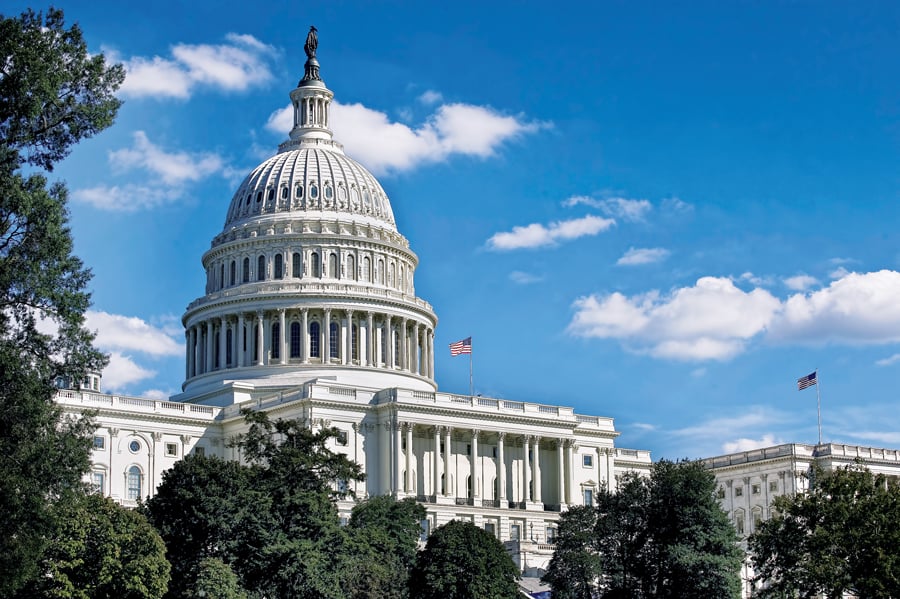

Remember when Barack Obama campaigned on a promise that if you like your health plan, you can keep it? Millions of Americans who lost their health insurance plans beg to differ.
Now, Joe Biden is campaigning on a similar promise when it comes to retirement security. He is campaigning on a pledge to strengthen retirement plans. Yet, like Obama before him, he’s really saying that you can keep your retirement plan if he likes it.
As the former Kansas State Treasurer with the responsibility to manage our state’s retirement plan, I led the way in changing the negative trajectory of the Kansas Public Employees Retirement System, which went from the second-to-last in the country in terms of funding to 29th today. I can assure you that there are several key problems with Biden’s approach to retirement security.
Biden essentially plans to change how retirement plans are structured by changing how the tax benefit works for your existing plan. He would repeal the current tax deferral of traditional retirement plans such as 401(k)s and individual retirement accounts and replace it with a tax credit.
The details of his retirement plan are ambiguous but appear to involve taxing income twice by only including after-tax contributions in retirement accounts, which are again taxed as income when withdrawn. Biden plans to offset this double taxation with a tax credit that would make Americans more dependent on the government and prevent retirees from realizing the benefits of a lifetime of compounded interest on their pretax retirement account income.
In short, Biden wants to get rid of your retirement plan as you know it.
A better approach is to build on the bipartisan success of the SECURE Act recently passed by Congress that strengthened retirement accounts for millions of Americans. I was proud to work with Chairman Richard Neal, D-Mass., and my colleagues on the Ways and Means Committee to pass the SECURE Act, which allows small-business workers to join multiple employer plans and offers small businesses tax incentives to set up automatic enrollment in retirement plans.
Instead of ending your retirement plan as you know it, Biden should follow Chairman Neal’s lead and call for a Retirement Security 2.0 package that builds on the bipartisan success of the SECURE Act. Republicans and Democrats should work together on commonsense measures like auto-enrollment in retirement plans for new employees and increasing the required minimum distribution age from 72 to 75.
We should allow employers to make an elective contribution to a retirement account that matches what an employee pays in student loans. And we should permit nonprofits, school systems and religious institutions that participate in 403(b) plans to invest in collective investment trusts, as private-sector 401(k)s do.
In addition, Biden is already preparing to break his promise not to raise taxes on Americans earning less than $400,000 a year. He supports the financial transaction tax on middle-class Americans proposed by Sen. Bernie Sanders, D-Vt., which would see the government charge a fee to 401(k) accounts every time a transaction is made. Under Sanders’ version of the financial transaction tax, a typical retirement investor will end up with 8.5% less in his or her 401(k) or IRA after a lifetime of savings. In dollar terms, the average IRA investor would have $20,000 less at retirement as a result of this tax, according to a study by the Center for Capital Markets Competitiveness.
According to a recently published study by the Penn Wharton Budget Model. Biden’s reckless proposal for $5.4 trillion in new spending over the next 10 years far surpasses the $3.4 trillion in new revenue his plan would bring in. Biden’s proposed budget is already $2 trillion in the red, but it pales in comparison to the radical wing of the Democratic Party’s reckless plans to spend at least $51 trillion on socialist programs like the Green New Deal, a government takeover of health care and “guaranteed income” for people who aren’t working.
COVID-19 is already disruptive and stressful for middle-class Americans, especially those nearing retirement. Policymakers should take responsible steps to provide real security, not reimagine retirement plans and raise taxes to fund the Democrats' socialist wish list.
Ron Estes is a fifth-generation Kansan and represents Kansas’ 4th Congressional District in the U.S. House of Representatives. He serves on the House Committee on Ways and Means.

While industry statistics pointing to a succession crisis can cause alarm, advisor-owners should be free to consider a middle path between staying solo and catching the surging wave of M&A.

New joint research by T. Rowe Price, MIT, and Stanford University finds more diverse asset allocations among older participants.

With its asset pipeline bursting past $13 billion, Farther is looking to build more momentum with three new managing directors.

A Department of Labor proposal to scrap a regulatory provision under ERISA could create uncertainty for fiduciaries, the trade association argues.

"We continue to feel confident about our ability to capture 90%," LPL CEO Rich Steinmeier told analysts during the firm's 2nd quarter earnings call.
Orion's Tom Wilson on delivering coordinated, high-touch service in a world where returns alone no longer set you apart.
Barely a decade old, registered index-linked annuities have quickly surged in popularity, thanks to their unique blend of protection and growth potential—an appealing option for investors looking to chart a steadier course through today's choppy market waters, says Myles Lambert, Brighthouse Financial.
